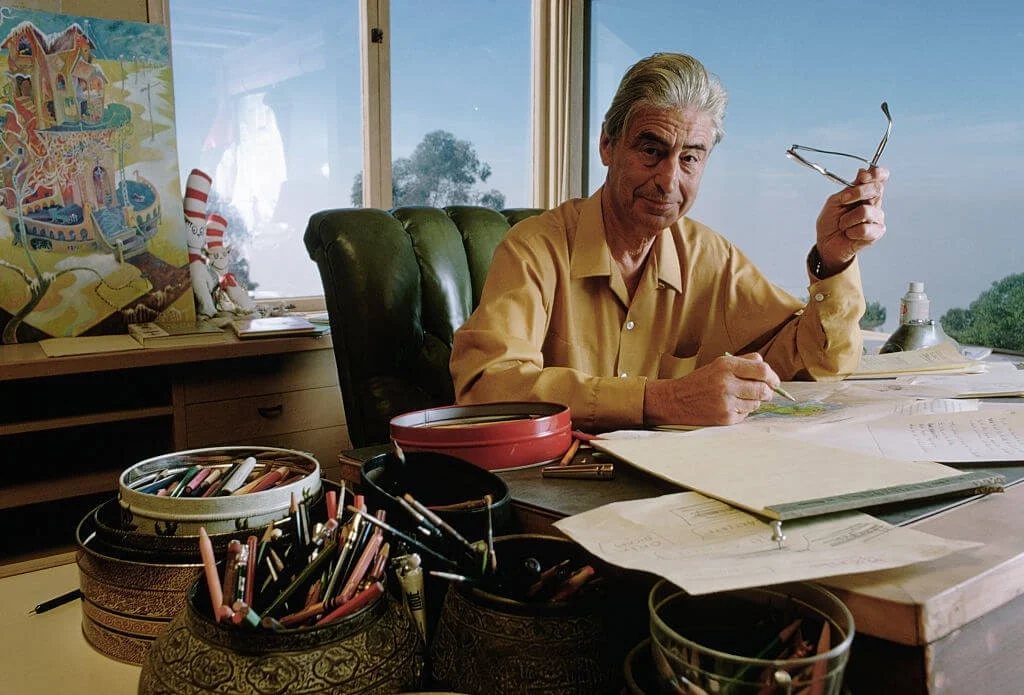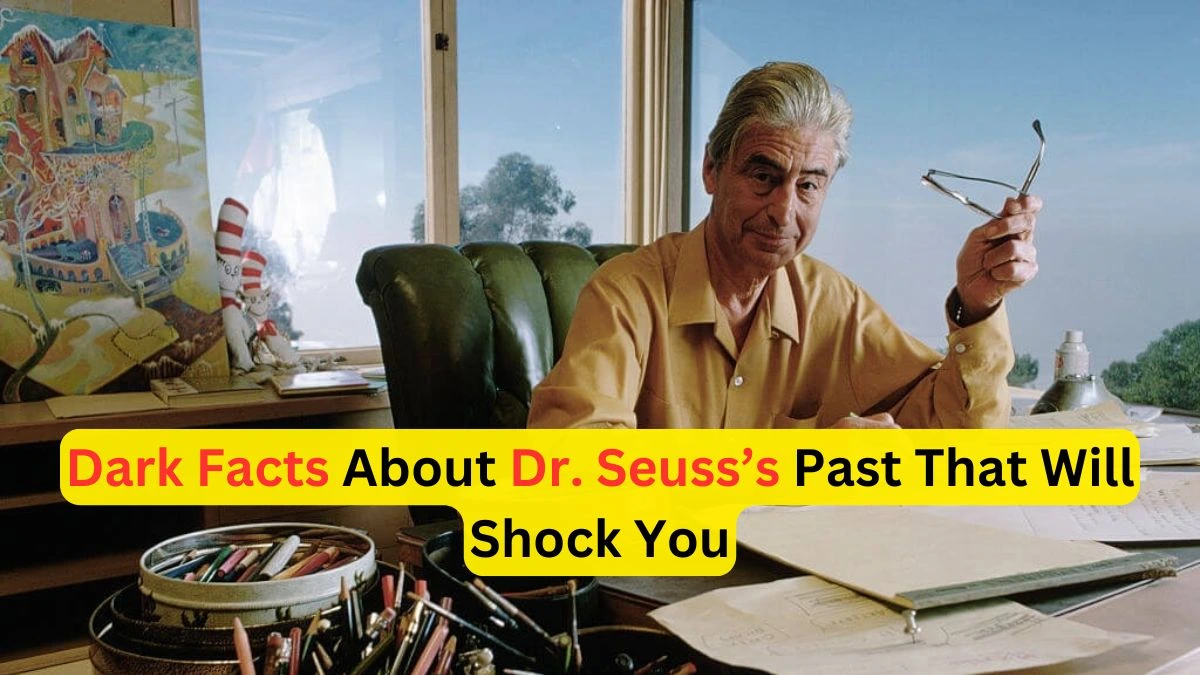Dr. Seuss, the beloved children’s author, is known for his whimsical stories and iconic characters. However, his past holds some dark and controversial secrets that might make you cringe. From problematic political cartoons to personal struggles, these facts reveal a side of Dr. Seuss that many fans may not know.
Controversial Political Cartoons
During World War II, Dr. Seuss created political cartoons that included racist and xenophobic imagery. These cartoons targeted Japanese Americans and other minority groups, reflecting the prejudices of the time. While he later expressed regret, these works remain a troubling part of his legacy.

Racist Depictions In Early Works
Some of Dr. Seuss’s early children’s books contained racist caricatures and stereotypes. For example, And to Think That I Saw It on Mulberry Street featured a character depicted with yellow skin and a conical hat, perpetuating harmful stereotypes. These depictions have since sparked debates about the appropriateness of his works.
Strained Personal Relationships
Dr. Seuss’s personal life was far from perfect. His first wife, Helen, struggled with his infidelity and eventually took her own life. This tragic event casts a shadow over his otherwise celebrated career and highlights the complexities of his personal relationships.
Anti-Semitism Allegations
Some of Dr. Seuss’s political cartoons have been criticized for containing anti-Semitic imagery. These cartoons, created during the 1930s and 1940s, reflect the widespread prejudices of the era but remain a stain on his reputation.
Environmental Hypocrisy
Despite writing The Lorax, a book advocating for environmental conservation, Dr. Seuss was known to have a lavish lifestyle that included owning multiple cars and large properties. This contrast between his message and his actions has led to accusations of hypocrisy.
The Cat In The Hat Controversy
The Cat in the Hat has been criticized for its perceived racial undertones. Some scholars argue that the character’s appearance and behavior reflect minstrel show stereotypes, raising questions about the book’s underlying messages.
Dr. Seuss’s Evolving Views
In his later years, Dr. Seuss expressed regret for some of his earlier works and sought to make amends. He revised certain books to remove offensive content and used his platform to promote tolerance and inclusivity. This evolution shows a willingness to learn and grow.
The Legacy Of Dr. Seuss
Despite these controversies, Dr. Seuss’s contributions to children’s literature remain significant. His stories continue to inspire and entertain millions of readers worldwide. However, it’s important to acknowledge the darker aspects of his past to fully understand his legacy.
Conclusion
Dr. Seuss’s past is a mix of creativity, controversy, and complexity. While his works have brought joy to countless children, the darker aspects of his life remind us that even our heroes are human. By examining these facts, we can appreciate his contributions while also learning from his mistakes.








